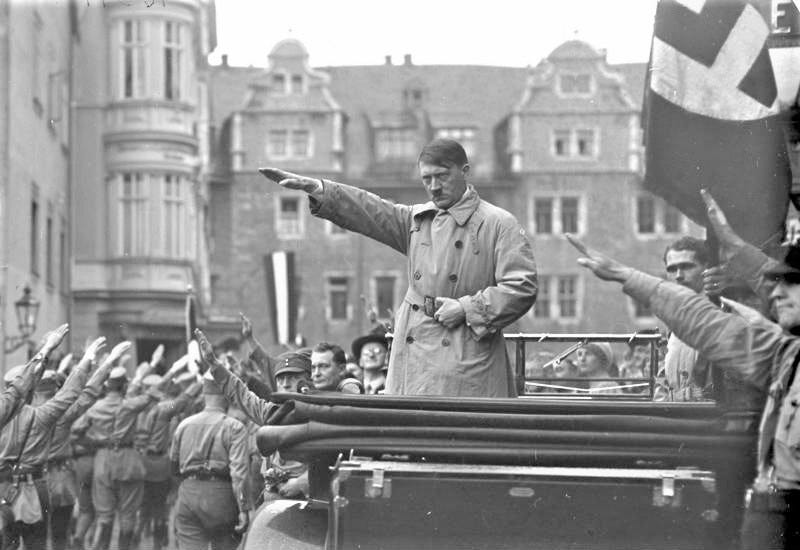Thuringia was Hitler's stronghold, now it's the AfD's. That doesn't mean it's 1924.
An appeal for a different debate about the AfD

Last Sunday, a far-right party won a major German election for the first time since the Nazi era. Regional polling in Saxony and Thuringia has sent shockwaves around the globe. The Alternative für Deutschland (AfD) won just under a third of the vote in both states. In Thuringia, that was enough for a comfortable win.
The idea that a party further to the right than conservatism could ever be popular in Germany again deeply concerns people. I’ve given interviews in the media of half a dozen countries about this since the preliminary results came out on Sunday.
But most of all, it frightens non-AfD voting Germans because many of them feel a nightmarish repeat of history is unfolding in front of their eyes and they have no idea how to stop it.
The temptation is high to equate the AfD with Nazis, citing selected highlights of the chain of events that enabled Adolf Hitler's rise to power. With this warning from history ringing so loud and clear in German ears, people are urged to see that the only way of preventing a repeat of the 1930s and 40s is to keep voting for the moderate parties, regardless of whether they deliver for voters or not.
Lars Klingbeil, co-leader of Chancellor Olaf Scholz’s Social Democrats, applied this strategy when he called the AfD “Nazis” in a TV debate. When AfD co-leader Alice Weidel asked whether he was referring to her, he said “Yes.”
He’s not alone. The words “fascists” and “Nazis” are bandied around in the political mainstream a lot these days in the hope that they carry some moral weight. Germany’s foremost political magazine Der Spiegel recently ran the title story: “How Fascism Begins. The Secret Hitlers.” Examples included Putin, Trump, Orbán, Meloni, Le Pen, Modi and the AfD.
Somewhat more subtle approaches have pointed out that it was in Thuringia where in 2024 the AfD achieved its first parliamentary win and where a century earlier, in 1924 the first Nazis were elected as MPs into the regional parliament. Articles on the ‘fateful’ 1924 election circulated in the German media on its centenary in February 2024.
Of course, there is a lot of sense in studying that election to work out how the Nazis were able to break through, not least because it marks a crucial step on their path to power. In February 1924, Hitler sat in prison awaiting the verdict of the trial for his violent attempt to seize power during the Munich Putsch the previous November.
He would be convicted of High Treason in April and given a five-year sentence and a fine – nothing more than a slap on the wrist from a sympathetic judiciary. Hitler only served 264 days of his prison sentence and under very comfortable conditions that allowed him to write his book Mein Kampf and to direct political activity from his cell.
Nonetheless, the Nazi Party was banned across Germany. So how could some of Hitler’s disciples stand for election for the Thuringian parliament in February 1924? The answer is important for anyone who favours an AfD ban now: Hitler’s men didn’t stand as Nazi Party members. You can ban a party but it’s far more difficult to ban people. These early Nazis stood as independent candidates or under a list with a new name. That’s what happened in Thuringia and seven of them got elected as MPs. Their influence was to succeed their number by far.
Keep reading with a 7-day free trial
Subscribe to ZEITGEIST to keep reading this post and get 7 days of free access to the full post archives.

